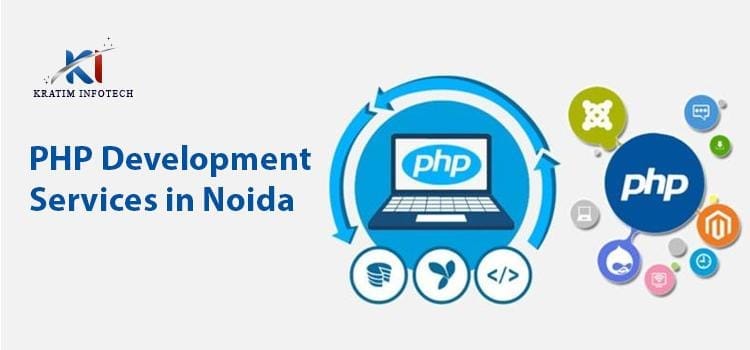PHP Development Services in 2023 Latest Trends and Future Prospects
In the ever-evolving landscape of web development, PHP continues to be a cornerstone for creating dynamic and interactive websites and applications. As we step into 2023, it’s essential to examine the latest trends and potential future prospects for PHP development services. From modern coding practices to emerging technologies, this blog dives deep into the world of PHP to shed light on what lies ahead.
Adoption of PHP 8:
PHP 8, released in late 2020, brought forth a plethora of performance improvements and exciting features like JIT compilation, union types, and match expressions. In 2023, expect a wider adoption of PHP 8 as more projects migrate to leverage its benefits, resulting in faster and more efficient applications.
Rise of Low-Code and No-Code Platforms:
With the rise of low-code and no-code development platforms, PHP developers might find themselves focusing more on creating custom modules and integrations. These platforms empower businesses to build applications rapidly, making PHP a valuable tool in creating bespoke functionalities.
Microservices Architecture:
Microservices have gained momentum due to their scalability and agility. PHP, with its lightweight nature and flexibility, can play a significant role in building microservices-based architectures. Expect an increased demand for PHP developers who can design and manage microservices effectively.
Serverless Computing:
Serverless computing liberates developers from server management concerns, enabling them to dedicate their efforts entirely to crafting code that drives innovation. PHP can be integrated into serverless environments, making it easier to create scalable and cost-efficient applications. This trend opens new avenues for PHP in building event-driven and real-time applications.
API-Centric Development:
APIs are the backbone of modern applications, enabling seamless integrations and interactions between different services. PHP’s versatility makes it an excellent choice for building APIs, and in 2023, we can anticipate a surge in API-centric development projects using PHP.
Progressive Web Applications (PWAs):
PWAs offer a native app-like experience on the web, enhancing user engagement and performance. PHP, in combination with frontend technologies, can play a pivotal role in developing PWAs. PHP developers will need to embrace this trend to create engaging and responsive applications.
Increased Emphasis on Security:
In an ever-evolving digital landscape, where cyber threats shape-shift relentlessly, safeguarding digital assets stands unwavering as an imperative priority. PHP developers must stay updated with the latest security practices and implement measures to protect applications from vulnerabilities. Integrating security practices into the development lifecycle will be crucial.
Artificial Intelligence and Machine Learning Integration:
PHP can be used in combination with AI and ML libraries to develop intelligent applications. Whether it’s chatbots, recommendation systems, or data analysis tools, PHP’s integration with AI/ML technologies offers exciting opportunities for innovation.
Containerization and DevOps:
Containerization (using tools like Docker) and DevOps practices streamline the development-to-deployment pipeline. PHP developers who are well-versed in these practices can contribute to creating efficient, scalable, and manageable applications.
Sustainability and Green Computing:
In an era of environmental consciousness, the tech industry is also moving towards sustainable practices. PHP developers might find themselves working on optimizing code for energy efficiency and reducing the carbon footprint of applications.
Conclusion:
PHP development services are poised to undergo significant transformations in 2023 and beyond. From embracing new PHP versions to adopting emerging technologies, developers must remain adaptable and open to learning. As PHP continues to evolve, its role in creating innovative and user-centric applications remains stronger than ever. By staying up-to-date with the latest trends and actively participating in the community, PHP developers can shape the future of web development in a rapidly changing digital landscape.


